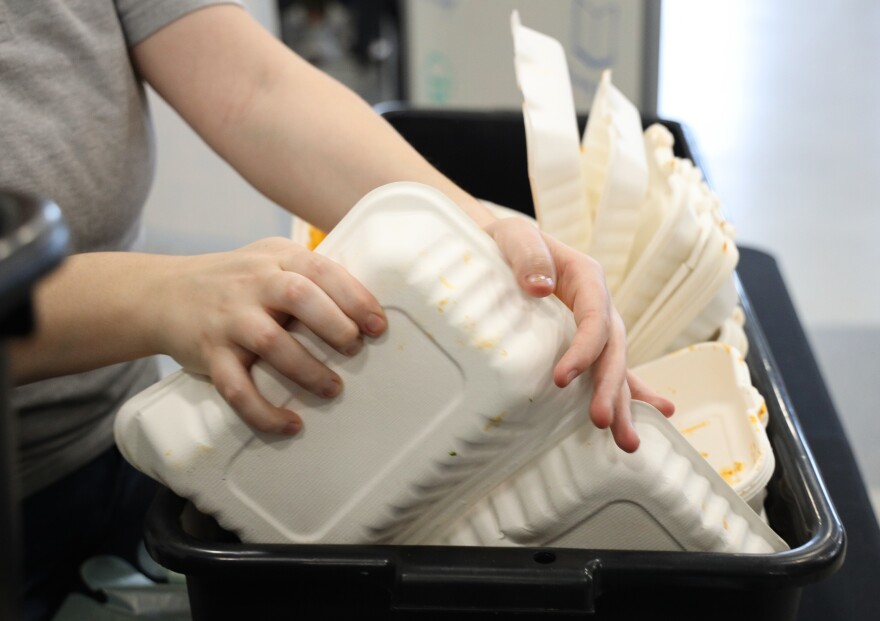Across college campuses in the U.S., sustainability efforts are gaining traction—bike shares, plant-based dining, and bans on single-use plastics are becoming more common. But one initiative is standing out for its environmental impact: composting.
Rochester Institute of Technology’s bustling Brick City Cafe is the prime spot for the university’s 20,000 students to grab a bite between classes. With that volume comes a major challenge—food waste. When it ends up in a landfill, food waste emits methane, a potent greenhouse gas.
“It doesn’t decay how most people would think,” said Phil Piedmont, waste management specialist at the University of Rochester. “There's a picture of a 10-year-old carrot. It looks the same, just like a carrot, just a different color, and it was in a landfill for a decade.”

According to the Natural Resources Defense Council, college campuses across the country throw out 22 million pounds of food each year. To address this, many universities—including several in the Rochester area—are integrating composting into daily operations and cultivating a culture around sustainability.
At RIT, composting is more than an initiative—it’s part of the university’s identity. Zero-Waste Ambassadors like Jack Penland help divert food waste during events, including hockey games. One Earth Week event, “Tigers vs. Trash,” had students hand-sort post-consumer waste to raise awareness about composting and sustainability.
“We’ll have a separate bin for post-consumer compost, and we’ll be weighing that and informing the community of how much we diverted every day,” said Don LaFlam, RIT’s executive director of dining services.
Penland, a student ambassador, said his passion for sustainability began long before college.

“Growing up in Tennessee, there were no recycling centers near me,” he said. “I kind of forced my parents to drive 40 minutes just to recycle. Coming up here, I knew I had to keep these initiatives in mind.”
In the 2023-2024 season alone, Zero-Waste Ambassadors helped divert more than 5,800 pounds of food waste from landfills during arena events, according to RIT.
“We really like to solve problems,” said Neha Sood, RIT’s director of sustainability. “Our students are all about, what is it that needs to be done, and we're going to find a way to do it.”
Other area schools are taking their own approaches to the food waste issue.
The University of Rochester has its own composting program, and also focuses on on prevention, and pre-consumer waste.
“We don’t just want to keep putting more food waste into the stream,” said Amy Cadrie, senior sustainability manager. “We want to take it out by reduction.”

Nazareth University is prioritizing local sourcing. Bob Fox, the school’s dining general manager, said working with local vendors is important to their sustainability goals.
"We like to look at the footprints of bringing everything in,” said Fox.
Nazareth has its own microfarm at the entrance of their dining commons, where herbs are cultivated for some of the menu items.
Other colleges are also working with vendors located within just a few miles of their facilities, significantly cutting down on emissions from transportation, and moving to plant-based meal options, which also reduces the environmental impact of food production.
Together, these institutions reflect a broader national trend: young people are not just concerned about sustainability—they’re taking action to embed it into every part of campus life.



